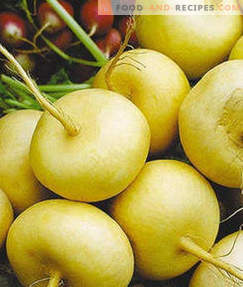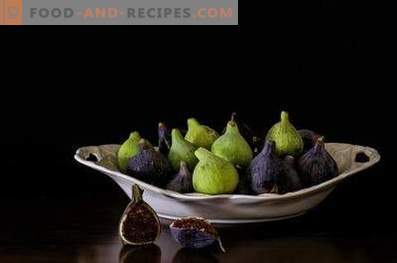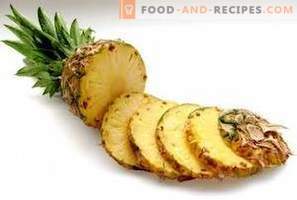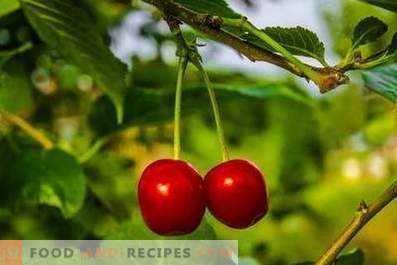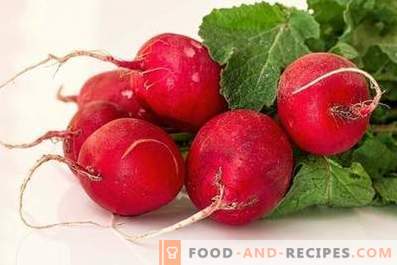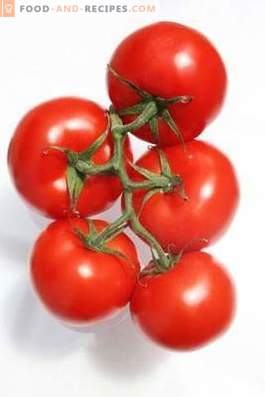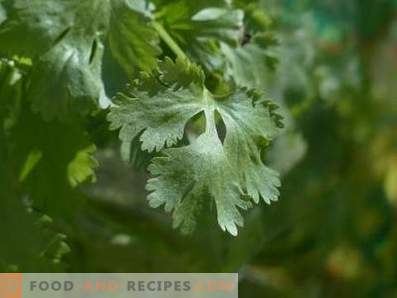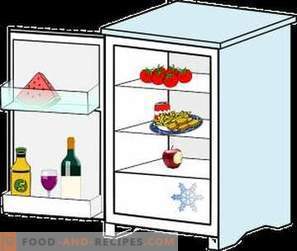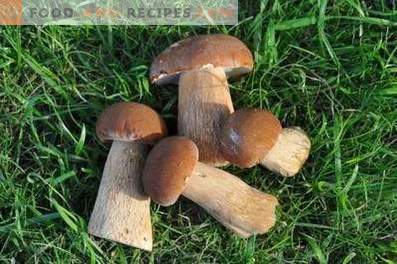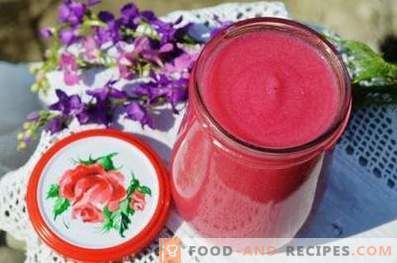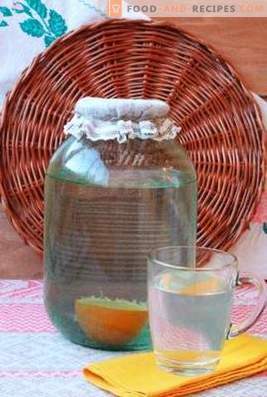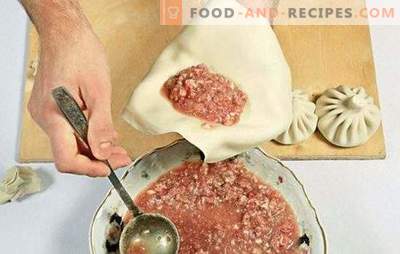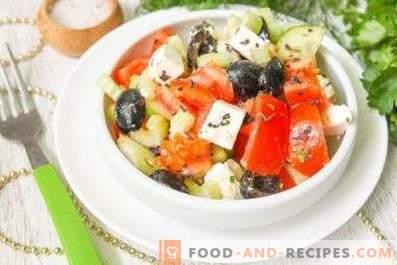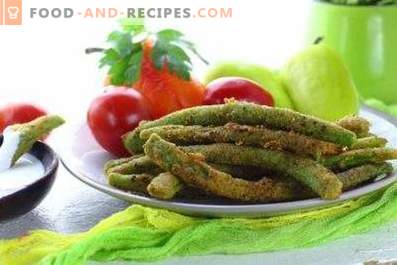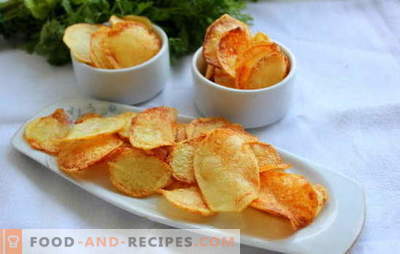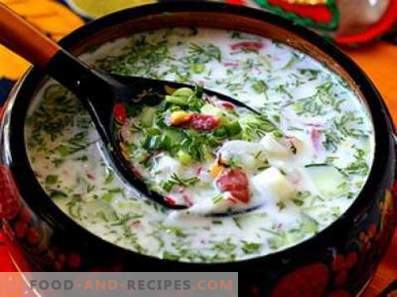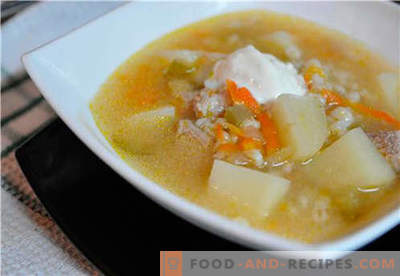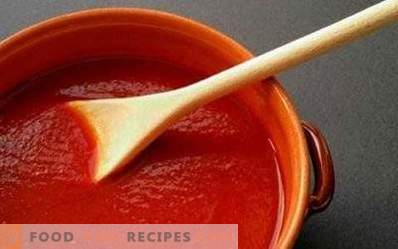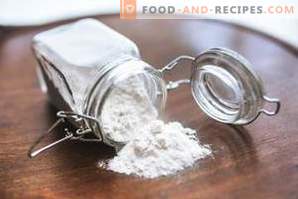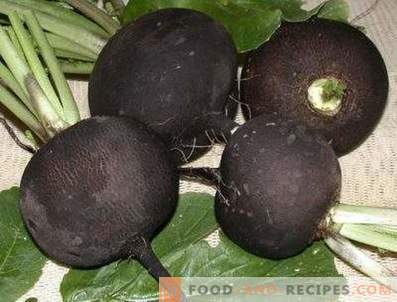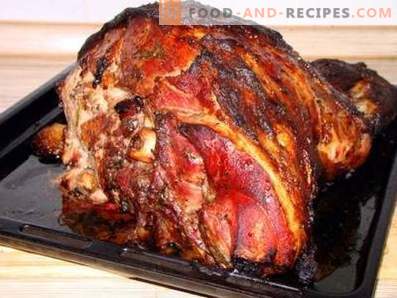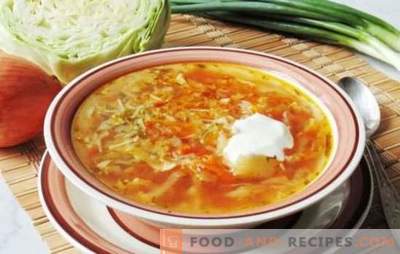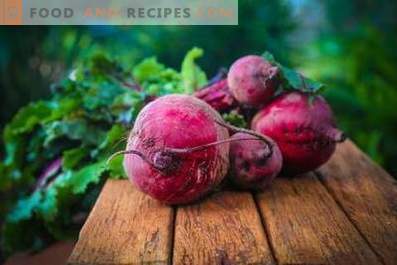
Beet is a herbaceous heat-loving plant belonging to the Amaranthaceae family. The homeland of the representatives of this species are the countries of the Far East and India: it was on the territory of these states in the IV century BC that the first root varieties of this culture appeared.
The first mentions of beet planting in Kievan Rus belong to the X century. In the XIII century, this plant was cultivated in the territory of Western European states, and in the XIV century - in the Nordic countries. Today, this tasty and healthy vegetable is grown in all corners of the globe (the only exception is Antarctica).
In the first year of life, beetroot forms a rather large root crop of dark red or red-purple color. The ground part of the plant is a rosette of ovoid green leaves on long maroon petioles. In some cases, tops have a bright red color.
By the end of the first year of life (and in biennial plants - in the second year of life) a grassy leafy stem with a height of 30 to 125 cm grows from the center of the socket. The fruit of the plant is a compressed single-seedling, which is formed in a small stems.
Beetroot has excellent taste, so dishes from it are present in the kitchens of most nations of the world. Soups are made from the leaves of this culture, and from rhizomes - first courses, snacks, drinks (kvass), salads and desserts. All parts of this unique plant are actively used in alternative medicine to combat a variety of pathologies.
Nutritional value of beets and vitamins in its composition
Beetroot - a real fount of nutrients and vitamins. Root crops and leaves of this plant contain vegetable proteins, sugars, organic acids and other vital compounds for the human body. An interesting fact is that the nutrients contained in the beets are not destroyed during its heat treatment.
Nutritional value 100 g of beet:
- 0, 12 g of fat;
- 8, 74 g of carbohydrates;
- 1, 41 g of proteins;
- 2, 28 g of fiber;
- 0.11 g of organic acids;
- 84, 74 g of water;
- 1, 03 g of ash;
- 0, 11 starch;
- 8, 69 g of di- and monosaccharides.
Vitamins per 100 g of beet:
- 2, 122 μg of vitamin A;
- 0.023 mg of thiamine (B1);
- 0, 239 mg of vitamin PP;
- 0, 101 mg of pantothenic acid (B5);
- 0, 012 mg of beta-carotene;
- 0, 047 mg of riboflavin (B2);
- 9, 968 mg of ascorbic acid (C);
- 0, 074 mg of pyridoxine (B6);
- 0, 116 mg of vitamin E;
- 13, 004 μg of folic acid (B9);
- 0, 451 mg of niacin equivalent.
Energy value of beet
Beetroot is one of the sweetest vegetables on the planet. Nevertheless, the roots and leaves of this plant have a relatively low energy value.
- The caloric value of 100 g of raw beets is 41, 3 kcal.
- Caloric content of one root crop of medium size (0, 4 kg) - 165, 2 kcal.
- Caloric value of 100 g of beet tops - 16, 9 kcal.
- The calorie content of boiled beets is 48, 7 kcal.
- The caloric content of dried beets is 252, 8 kcal.
- The calorie content of beet puree is 69, 7 kcal.
- Caloric content of beet juice - 42, 8 kcal.
- Calories of canned beets - 32, 4 kcal.
Micro and macro elements in the composition of beets
Beets are a rich source of beneficial macro and micronutrients. The plant and roots of this plant contain magnesium, iron, calcium, zinc, potassium and other vital substances for the human body.
Macroelements per 100 g of beet:
- 288, 54 mg K (potassium);
- 43, 83 mg Cl (chlorine);
- 46, 77 mg of Na (sodium);
- 37, 48 mg Ca (calcium);
- 43, 28 mg P (phosphorus);
- 22, 12 mg Mg (magnesium);
- 7, 13 mg S (sulfur).
Trace elements per 100 g of beet:
- 1, 39 mg of Fe (iron);
- 0, 47 mg Zn (zinc);
- 7, 14 μg I (iodine);
- 139, 89 µg Cu (copper);
- 20, 32 μg Cr (chromium);
- 0, 68 mg Mn (manganese);
- 9, 78 µg Mo (molybdenum);
- 19, 89 μg F (fluorine);
- 70, 32 μg V (vanadium);
- 280, 23 μg B (boron);
- 2, 24 µg Co (cobalt);
- 14, 78 μg Ni (nickel);
- 452, 78 μg of Rb (rubidium).
Useful properties of beets
- Beets bring invaluable benefits to people suffering from chronic constipation. The roots of this plant are rich in fiber, organic acids and other substances that enhance the motility of the gastrointestinal tract, regulate metabolic processes, stimulate the secretion of digestive enzymes and sanitize the intestines. Beet juice is a natural antiseptic that effectively destroys pathogenic intestinal and gastric microflora. In general, the inclusion in the diet of dishes prepared from this vegetable, can significantly improve the performance of the digestive tract.
- Beetroot juice is a truly effective remedy for the common cold. In order to get rid of all the manifestations of rhinitis, it is enough to bury this herbal remedy in the nasal passages instead of nasal drops.
- Beets are a rich source of natural antioxidants. Eating this root helps to minimize the risk of tumor tumors (breast cancer in women, colorectal cancer in both sexes) and slow the formation of metastases in cancer.
- Betaine and other compounds that make up the beetroot juice increase the body's physical endurance and help it recover faster after playing sports, hard work, and protracted illnesses.
- The root of the plant is the pulp is an excellent hepatoprotective agent. Substances present in its composition, contribute to the renewal and restoration of liver cells, prevent fatty infiltration of the tissues of this organ.
- Ascorbic acid, flavonoids and vitamin F present in beet juice, improve the functioning of the visual apparatus and prevent the development of ophthalmologic diseases.
- Substances that make up beetroot, normalize lipid metabolism in the body and prevent the accumulation of excess weight. Dishes from it are the most important component of diets for weight loss.
- The beneficial compounds that this root crop is rich in have a beneficial effect on the functioning of the respiratory system. The use of dishes from it allows you to prevent the development of asthma or significantly increase the time intervals between attacks of this disease.
- Substances present in the beets contribute to the elimination of homocysteine, a non-proteinogenic amino acid, which negatively affects the vascular state and increases the risk of developing cardiovascular diseases. Regular inclusion of this vegetable in the diet can prevent the occurrence of atherosclerosis, Alzheimer's disease, hypertension and thrombosis.
- Beet juice contains substances that increase the potency in men and improve the composition of the ejaculate. It has been proven that regular consumption of beet dishes helps reduce the risk of developing prostate adenoma and male infertility.
- Many beneficial substances present in the beets are involved in the production of hormones. Inclusion in the diet of dishes from this vegetable prevents the development of a wide range of hormonal disorders.
- Beets help cleanse the body, effectively removing from it excess cholesterol, slags, toxins, heavy metals and other harmful substances. In addition, the compounds included in its composition, significantly reduce the negative effect of poisons on the tissues of the human body.
- Iron, B vitamins and cobalt, present in beet juice, improve the functioning of the hematopoietic system and avoid the development of anemia.
- Beets are an indispensable component of the diet of pregnant women. The inclusion of this root in the daily menu of the future mother helps to provide the baby with useful macro and microelements, vitamins, reduce the risk of birth defects and rickets, and create conditions for the normal formation of his nervous system.
- It has been proven that beet juice has a beneficial effect on the work of the female reproductive system. This drink reduces the manifestations of premenstrual syndrome, eliminates the symptoms of menopause, reduces the discomfort during painful menstruation, normalizes the cycle.
- Beets are a rich plant source of iodine. Regular inclusion in the diet of this product allows you to fully meet the body's need for this useful trace element, to avoid the development of iodine deficiency states and associated pathologies (for example, thyroid diseases).
- Beet juice has anti-inflammatory effects. The pulp of the root and the juice obtained from the leaves of the plant, is used to prepare compresses that accelerate the healing of wounds.
- Useful substances present in the composition of beet juice have a positive effect on the activity of the central nervous system. With this drink you can minimize the negative effects of stress on the body, get rid of depression and mood swings, improve sleep.
- Beetroot is an effective remedy for strengthening immune forces. Regular inclusion in the diet of dishes prepared on the basis of this vegetable, allows you to avoid seasonal avitaminosis and increase the body's resistance to bacterial and viral infections.
Contraindications to the use of beets
- Beetroot is a vegetable with a high sugar content. That is why people with diabetes should exercise extreme caution when incorporating this product into their diet.
- Regular consumption of dishes from this root can lead to increased acidity of gastric juice.
- Oxalic acid is present in beet juice, which increases the risk of stones in the urinary system. For this reason, doctors recommend that people at risk for this pathology exclude beet dishes from their diet or minimize their consumption.
- It has been proven that substances present in the composition of beets, interfere with the normal absorption of calcium. Too frequent consumption of this root can harm people suffering from bone diseases or injured bones.
- Beet juice effectively lowers blood pressure and is one of the most popular remedies for hypertension. For this reason, this drink is contraindicated for persons suffering from hypotension.
- Beets have a mild laxative effect, so the consumption of this vegetable is contraindicated for people suffering from diarrhea.
- Excessive consumption of beet juice can lead to a heart rhythm disturbance, fever and other adverse effects for the body. Nutritionists remind that this drink should be consumed in moderation, mixing it with other vegetable, berry and fruit juices.
